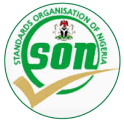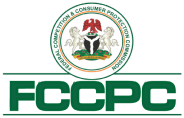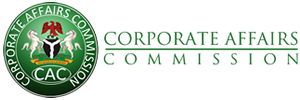
Biologicals, also known as biologics including Vaccines, are a type of medicinal product derived from living organisms or their components. These drugs are usually made using biotechnology techniques and are used to treat a wide range of diseases such as cancer, autoimmune disorders, and infectious diseases. Biologics differ from other drugs for human use in that they must – in addition to the information required for other drugs – include more detailed chemistry and manufacturing information.
Many of these are childhood vaccines used in the National Immunization Programme(NPI) that have contributed to a significant reduction of vaccine-preventable diseases in children.
The Vaccines, Biologicals and Medical Devices Directorate(VBM-LSD) regulates vaccine products through testing. The Laboratory operates a QMS to ensure the technical competence of the laboratory in compliance with the requirements of Good Laboratory Practices established in the following standards and guides: WHO Good Practice Guide for Pharmaceutical Product Quality Control Laboratories, Guide for Good Practices of Microbiological Laboratories of Pharmaceutical Products of the WHO and the NC-ISO/IEC 17025:2017 General Requirements for the competence of the Testing and Calibration Laboratories.
The laboratory has modern, up-to-date equipment that are qualified and calibrated to conduct its quality control activities. The laboratory equipment profile has increased with the purchase of new equipment for analysis such as the PCR, Biosafety cabinets, Elisa washer and Reader, HPLC, UV Spectrometer, FTIR, Incubators and also equipment for testing Personnel Protective Equipment (PPEs) such as Air Permeability Tester, Textile Tensile Testing Machine and Vertical Flammability Chamber amongst others.
Vaccine Resources
Sampling is an operation to select a portion of products for the purpose of testing in the laboratory.
VBM-LSD carries out sampling of vaccines and other biologics with a procedure that is well documented to show batch number, date and place of sampling, sampling method used, description of product sampled, notes on possible abnormalities, other observations, and name and signature of inspectors and consignee.
VBM-LSD carries out sampling of vaccines and other biologicals in collaboration with Ports inspectorate directorate.
A systematic random sampling is adopted on a batch-by-batch basis for the same product and every form of bias is eliminated.
VBM-LSD personnel are adequately trained in the practical aspects of sampling and qualified to perform sampling operation with sufficient knowledge of biological substances making them well equipped to execute the work effectively and safely.
Samples are kept in cold boxes to maintain cold chain of product all through the period of transportation to the laboratory.
Quality documents required from Consignee during sampling include:
- Certificate of Analysis (CoA): The CoA lists tests performed on a particular sample with the results obtained and the acceptance criteria applied, followed by an indication of whether or not the sample complies with specification. The compendia method used for the test should also be shown.
- Summary lot protocol: This document describes the key steps and critical test results at each step of the production process.
- Certificate of Release from the NRA where the product originates from.
Lot release is a basic requirement in the control of vaccines. It is to confirm the production of each batch or lot is consistent since every lot is distinct.
Biologicals are inherently variable due to the nature of the starting materials, manufacturing process and test methods. Post licensing monitoring of vaccines and biologics involves lot by lot release. The objective is to verify that a batch is in conformity with the approved specification and that it meets the product license or market authorization. The importance is that it ensures that each batch of the vaccine are safe and potent; in addition to GMP Inspection, Post Market Surveillance, and assurance of proper storage.
The documents required for lot release of a product include.
- Summary Lot Protocol (for protocol review)
- Certificate of Analysis
- Certificate of Release from the NRA where the product originates from.
VBM-LSD issues lot release certificates on imported vaccines after analysis and document review.
- Lot Release for 2022
- Lot Release for 2021
- Lot Release for 2020
- Lot Release for 2019
- Lot Release for 2018
- Download the NAFDAC Vaccine Mapping process here
Information About Safety of Vaccines
Biologics are very specific and highly effective medicinal products derived from living organisms and cannot be produced by chemical means like drugs. Some biologics are extracted from living systems (e.g. blood), others are products of recombinant DNA technology like monoclonal antibodies etc.
Vaccines are biological substances that provides active acquired immunity to a particular infectious disease caused by bacteria and viruses.
Vaccines are administered to a large number of healthy adults and infants; this helps to protect individuals from several life threatening diseases. In Nigeria, vaccination has greatly reduced the burden of infectious diseases and NAFDAC ensures the safety and efficacy of Biologics including vaccines before use.
The public is advised to always consult with healthcare providers to determine the vaccines and biologicals suitable for use and fit for purpose. Vaccines and biologicals should be administered by certified trained personnel.
Patients should report any adverse event following immunization to healthcare provider immediately.
The general public should report all activities that contravene the Agency’s mandate of safe guarding the health of Nigerians to NAFDAC authority.
Healthcare providers should always ensure that only vaccines and other biologics, certified safe and efficacious by NAFDAC are administered to patients. Healthcare providers should forward all reports of adverse events following immunization to the Pharmacovigilance unit of NAFDAC.Healthcare providers should ensure proper cold chain monitoring along its distribution line.
Healthcare providers should interface with designated NAFDAC staff on issues concerning NAFDAC. Please avoid use of external NAFDAC consultants for the purpose of NAFDAC accreditation as their appointments have been revocated.
The role of NAFDAC in safeguarding the health of the nation through immunization activities is to ensure that only safe and efficacious products are administered to the populace. This mandate is implemented through inspection, registration and appropriate laboratory tests alongside document review(certificate of analysis, certificate of release from regulatory authority of country of origin and summary lot protocol) to assure that vaccines and biologics to be used nationwide for immunization are appropriate, safe, of good quality and satisfactory for the intended users.
Frequently Asked Questions
The stipulated time for analysis of Vaccines/biologicals is 8weeks (working days only)CONDITIONS FOR REJECTION OF PRODUCTS
- Products with compromised cold chain system
- Submission of insufficient products as per sample guide
- Non-availability of required documents
- Poor Labelling of products
- Disparity in product information and required documents information.
- Products with shelf life less than six (6) months from expiry date (except for products with short shelf life).
All enquiries concerning sample submitted for analysis is made at the Directorate sample was submitted, which can then be forwarded to the Director or office of the Head of Laboratory.The Head of Laboratory receives all complaints and ensures the resolution of all complainants related to laboratory activity. Complaints should be resolved within 45 working days.Documents submitted during sampling of vaccines are
- Certificate of Analysis (COA)
- Certificate of Release (COR) from NRA of country of Origin (Vaccine)
- Summary Lot Protocol for production and testing (vaccines).
TRF stands for Test Request Form. It is a form issued to the customer to documents samples submitted to the laboratory and also to indicate test parameters being requested for the sample submitted by customers.
Vaccines should be stored and transported to the laboratory as stipulated on the product label by the manufacturer
No, except when there are issues of controversy after going through the appropriate channel.
Laboratory Risk-Based Testing &Categorization.
In the event an issued laboratory report needs to be changed, amended, or re-Issued, amendments to a laboratory report after issue shall be made only in the form of a further document and changes will be defined and shall be clearly identified.
The laboratory ensures customer satisfaction by analysis of samples as per stipulated timeline, Prompt handling of complaint, Continuous seeking and analysis of feedback (both positive and negative) feedback from customers and continuous communication of customers’ requirements to personnel of the laboratory.
When content of documents submitted are insufficient and the lab is awaiting response for more documents to be submitted by company.
Based on the approved sampling guide.
Page updated as of:






